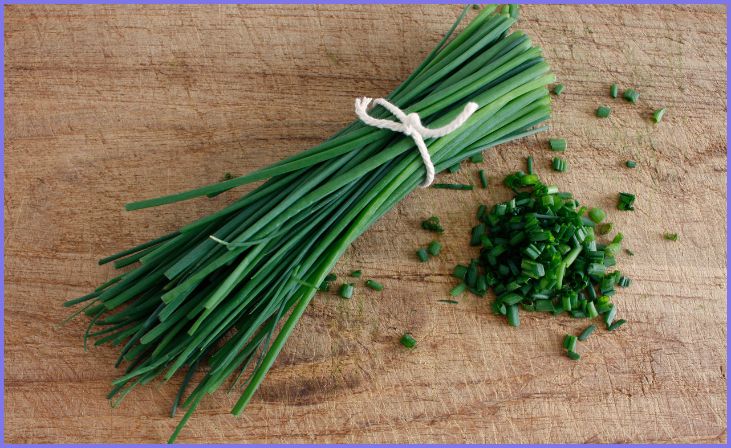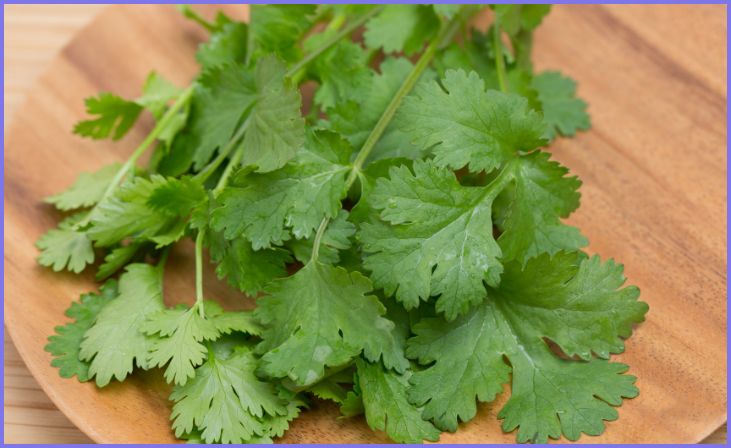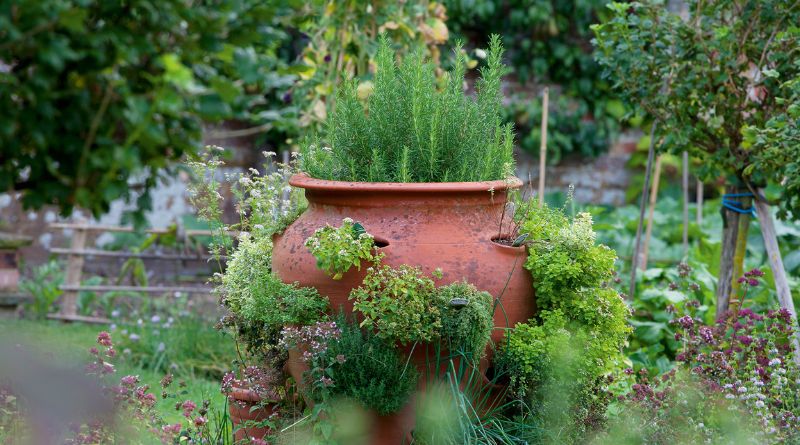Basil

Basil, a sun-loving herb with an enticing aroma and robust flavor, is a delightful addition to any garden. Choose a well-drained location with at least 6-8 hours of sunlight for optimal growth. This herb, renowned for its culinary versatility, complements a wide array of dishes, from savory Italian pasta sauces to refreshing pesto and salads. When cultivating basil, it’s crucial to pinch off the flowers regularly to encourage continual leaf production. By doing so, you’ll ensure a bountiful harvest of fresh basil leaves throughout the growing season, providing a fragrant and flavorful contribution to your culinary adventures.
Mint
Mint, renowned for its invigorating scent and cooling taste, is an easy-to-grow herb that thrives with minimal effort. Best suited for container gardening due to its vigorous spreading nature, mint enjoys well-drained soil and partial shade. This aromatic herb offers a refreshing twist to both culinary and beverage creations, from mint-infused teas to decadent desserts and cocktails. Regular pruning is essential to manage its growth and promote bushier foliage. By incorporating mint into your garden, you’ll have a versatile herb at your fingertips, adding a burst of freshness to various culinary delights.
Rosemary
The hardy and fragrant rosemary is a perennial herb that flourishes in well-drained, sandy soil and full sunlight. With its needle-like leaves and distinct aroma, rosemary is a culinary powerhouse, enhancing the flavor of roasted meats, vegetables, and even bread. Once established, rosemary requires minimal maintenance, making it an ideal choice for both beginner and seasoned gardeners. Regular pruning not only helps maintain its desired shape but also stimulates new growth, ensuring a consistent supply of fresh rosemary for your culinary endeavors.
Chives

Chives, with their mild onion flavor and slender green shoots, are a versatile and easy-to-grow herb. Plant them in well-drained soil and provide ample sunlight for optimum growth. Chives make excellent companions to other vegetables, as their natural aroma helps deter pests. Harvesting the leaves regularly, starting from the outermost shoots, promotes continual growth throughout the season. This herb adds a delightful touch to salads, soups, and various dishes, contributing a mild oniony flavor that elevates the overall culinary experience.
Thyme
Thyme, a low-maintenance herb with aromatic leaves, is a culinary treasure that thrives in well-drained soil and full sunlight. Its versatility in culinary applications, from marinades and stews to roasted dishes, makes it a valuable addition to any garden. Pruning the tips regularly helps maintain a compact shape and encourages lush growth. Thyme is an excellent choice for both novice and experienced gardeners, providing a flavorful and aromatic herb that enhances the taste of a wide range of culinary creations.
Parsley
Parsley, with its vibrant green foliage and fresh flavor, is a staple herb that deserves a place in every garden. Plant it in rich, well-drained soil with partial sunlight exposure. Consistent moisture is key to parsley’s success, so be mindful of watering. This versatile herb complements a myriad of dishes, adding a burst of freshness to salads, soups, and sauces. Regular harvesting, starting from the outer leaves and working inward, promotes continuous growth and ensures a readily available supply of this essential herb for your culinary endeavors.
Cilantro (Coriander)

Cilantro, also known as coriander in some regions, is a flavorful herb with both culinary and medicinal applications. Plant it in well-drained soil with partial shade, especially in warmer climates, to prevent premature bolting. Cilantro leaves are a key ingredient in various cuisines, contributing a distinctive citrusy note to dishes like salsas, curries, and salads. Harvest the leaves before the plant flowers for the best flavor. To ensure a continuous harvest, consider sowing cilantro seeds every few weeks, allowing you to enjoy the fresh and vibrant taste of cilantro in your cooking.







